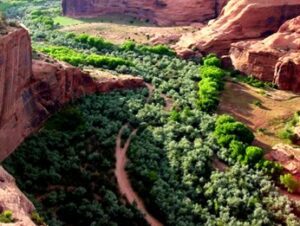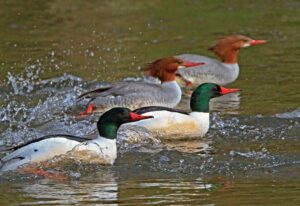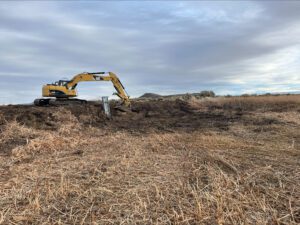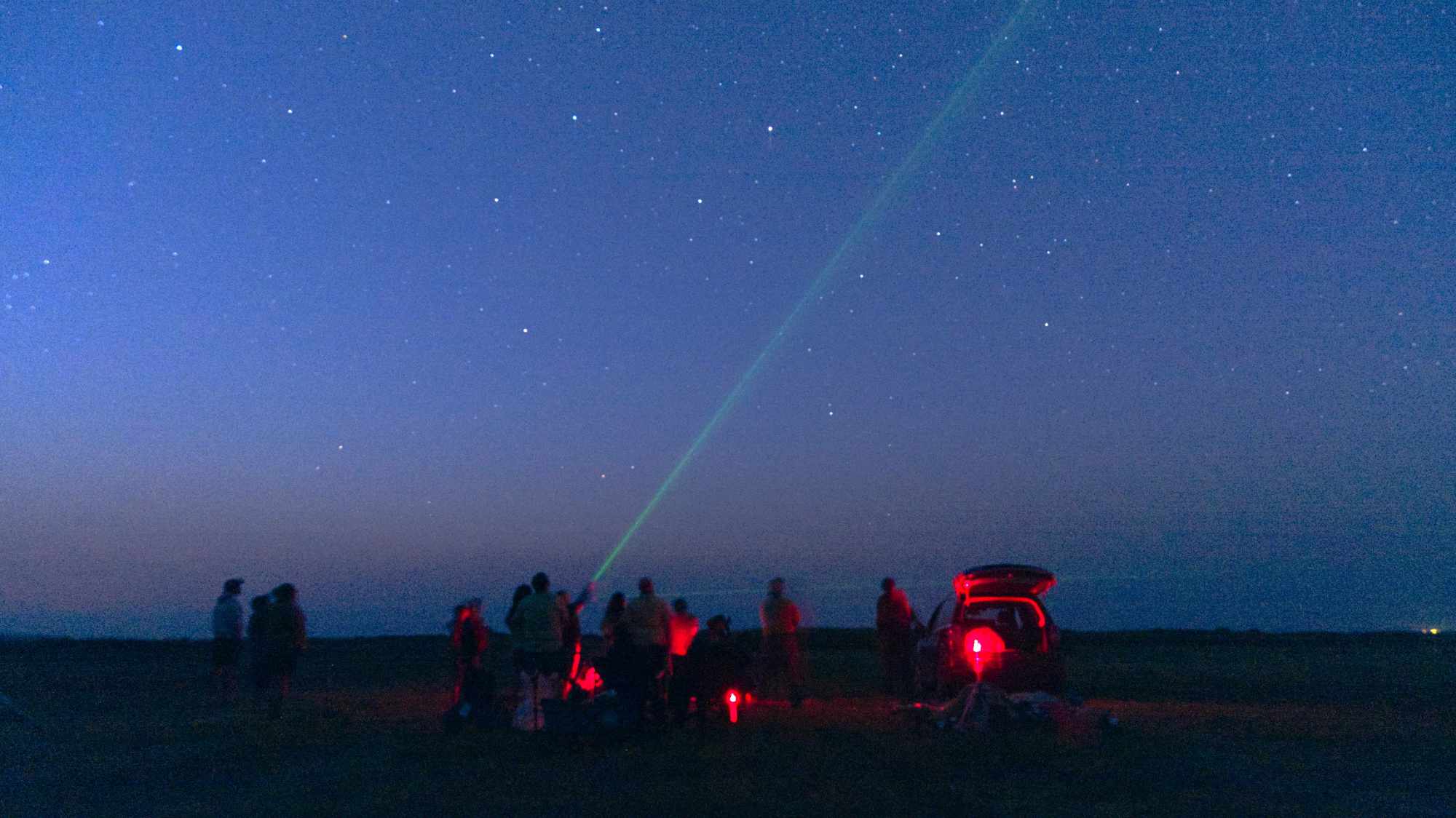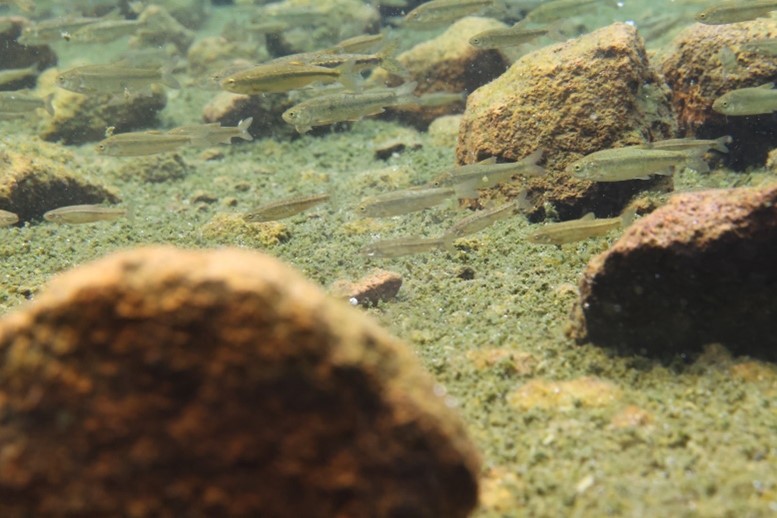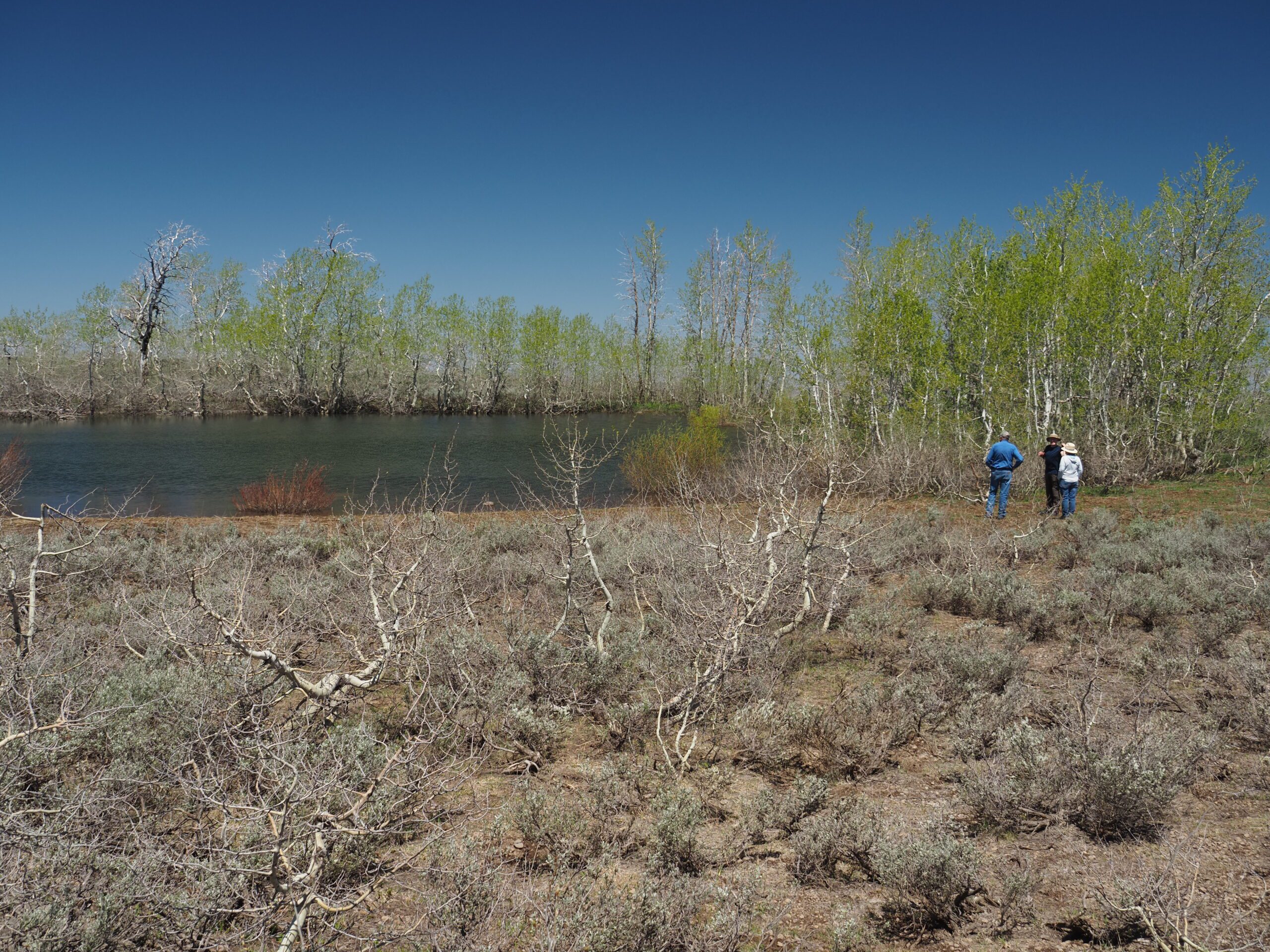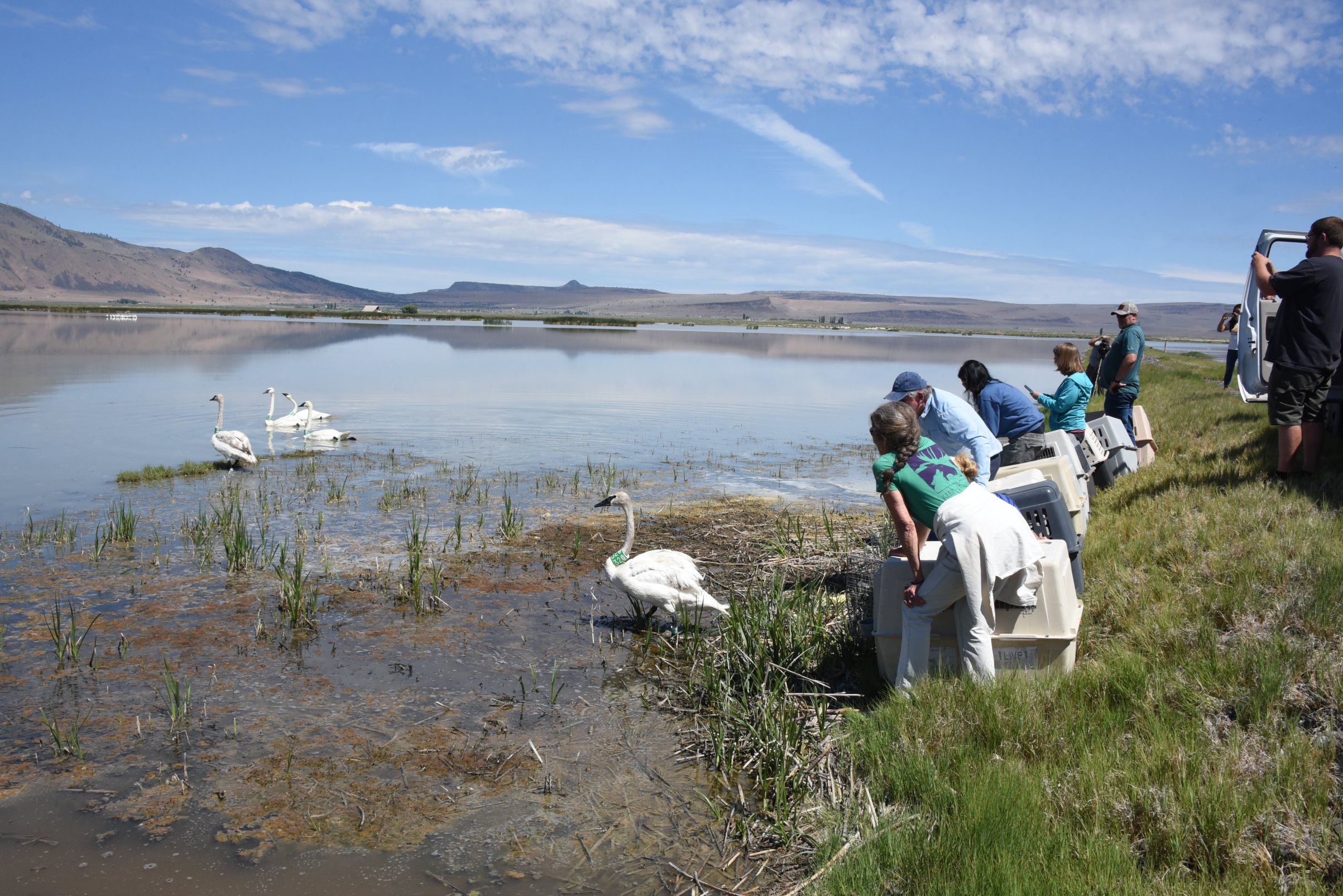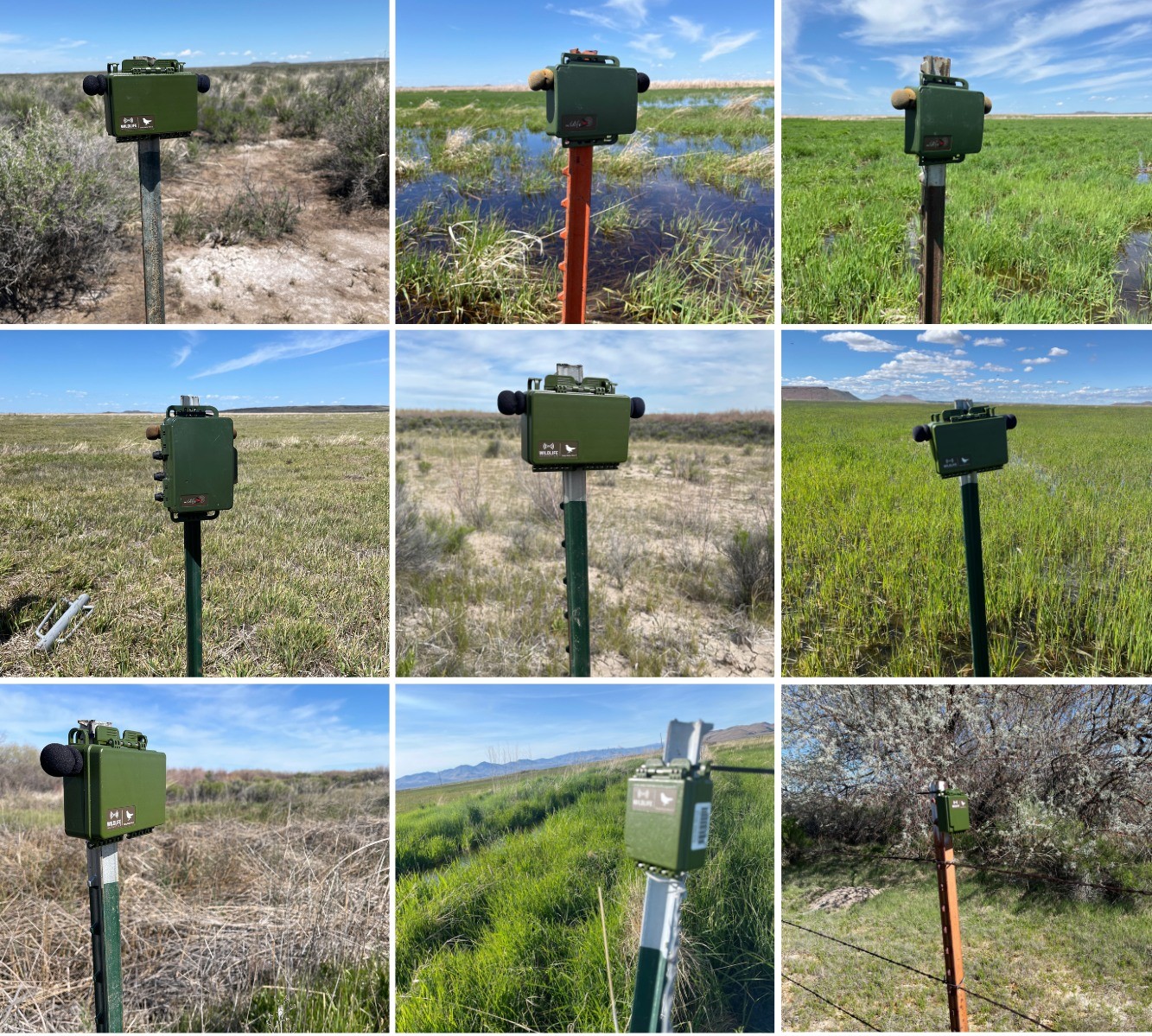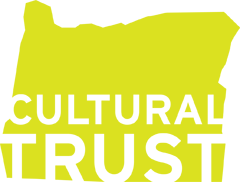Hi Friends!
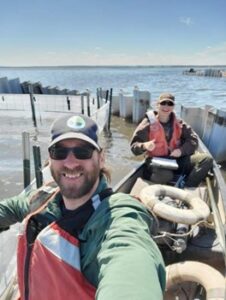
The second month of my internship here at the Malheur National Wildlife Refuge has been very rewarding. Along with taking measurements with the Flow Tracker as I primarily did last month, I have been helping Randy Brannan, the USGS seasonal hire, with collecting data at each of the 10 mesocosms in Malheur Lake.
I hadn’t the faintest idea what a mesocosm was until I started this internship – essentially, it’s an outdoor experiment that occurs under isolated or controlled conditions. The goal of this experiment is to determine which variables decrease the turbidity, or the opaqueness, of the lake. To measure turbidity and other values such as temperature, pH, and specific conductivity, we have been using Sondes paired with the handheld YSI 650 Multi-Parameter Display System. Randy does the grunt work while I record all the necessary data. Though our legs fall asleep often in the (slightly cramped) canoe, working almost a full day on the lake and learning more about this experiment and its detailed methods have been amazing!
My internship hasn’t just been canals and lakes! Last week, I had the opportunity to aid Alexa Martinez, the wildlife biologist at Malheur, and Teresa “Dr. Bird” Wicks, the Eastern Oregon Field Biologist for Portland Audubon, with snowy plover surveys. On Thursday, we walked along a 4-mile transect at the edge of Harney Lake, stopping every 200 meters to try and spot the perfectly camouflaged birds. By the end of the day, we spotted nine in total. I think our day ran a little long, as we couldn’t stop marveling at the snow plovers’ cuteness. Stinking Lake was our destination for Friday.
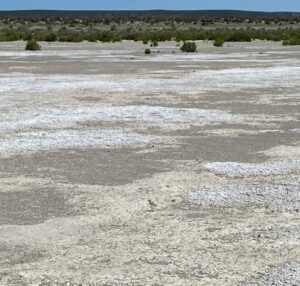

Unfortunately, with how wet this season has been, most the lake was inaccessible. We walked along a portion of the southeast corner and only spotted one snowy plover. After taking a long lunch at a spring, we called it a day and made our way back to headquarters.
I still have a while before my internship comes to an end, and I look forward to partaking in more surveys, data collection, and lake work. I was provided with the opportunity to attend the wetland plant identification training at Grays Lake National Wildlife Refuge in Wayan, Idaho! A blurb about that trip will definitely be included in the next update, so stay tuned!


